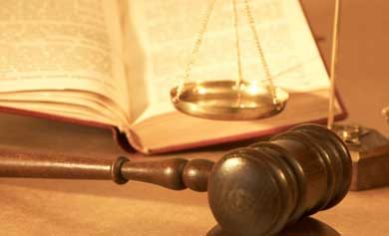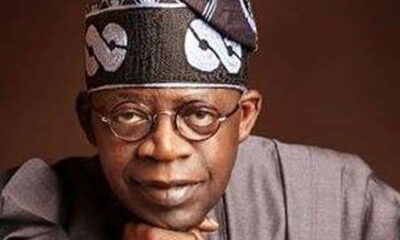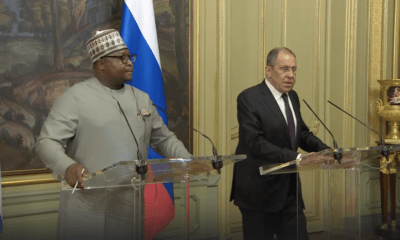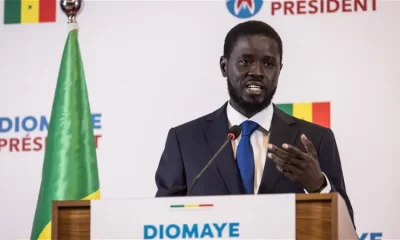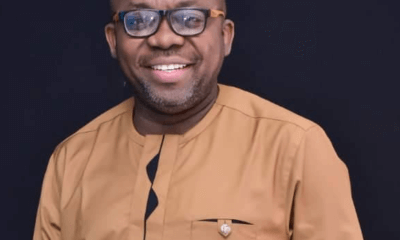Political Issues
The Rule of Law in the 2015 elections -By Festus Okoye
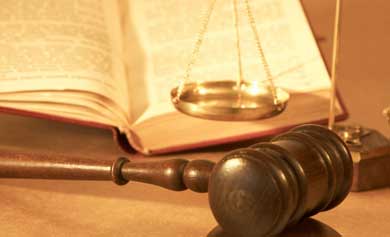
A number of Nigerians are apprehensive about the future of constitutional democracy. Many are also nervous about the 2015 general elections. This fear, this apprehension and this sense of foreboding appears to be cyclical.
However, the current anxiety appears to have been heightened by a combination of factors and issues that are similar and at the same time dissimilar. There is general apprehension that the country is drifting and that the political elite appear oblivious to this fact and are complicit in the drift.
There is apprehension that the sovereignty of the country has been terribly compromised and that the persons in control of the levers of power are playing politics with it rather than maintaining and protecting the territorial integrity of the Federal Republic of Nigeria. There is a certain level of apprehension that the type of rhetoric and hate speech emanating from the political elite is a recipe for genocide and yet there does not appear to be any let in their rhetoric or any form of moderation.
There is a certain sense in the land that the democratic process has been compromised and that unless something is done and done urgently, the process may come to grief. There is no doubt that the observance of the rule of law and due process are imperative for the sustenance of democracy.
And in a constitutional democracy the Constitution is the most fundamental document that articulates its shared values, interests, aspirations, fears and challenges. As the Supreme Court of Nigeria pointed out in the case of A.G., Ondo State v. A.G., Fed “…Our Constitution is an organic instrument which confers powers and also creates rights and limitations.
It is the supreme law in which certain first principles of fundamental nature are established. Once the powers, rights and limitations under the Constitution are identified as having been created, their existence cannot be disputed in a court of law.
But their extent and implications may be sought to be interpreted and explained by the court in cases properly brought before it. All agencies of government are organs of initiative whose powers are derived either directly from the Constitution or from laws enacted thereunder. They therefore stand in relationship to the Constitution as it permits of their existence and functions. Where then does the rule of law and due process fit into the parameters and ambit of constitutional democracy?
The Rule of Law is a pillar of constitutional democracy. Under the rule of law, everything must be done according to law. Government must also be conducted within the ambit and parameters of recognised rules and principles that restrict discretionary powers. It also presupposes that there should be equality of all citizens before the law.
What is important is that those who believe in it do things and carry out actions claiming that their actions are in accordance with the rule of law and due process.
Those that do not believe in the rule of law and due process also call in aid of the rule of law and due process in trying to rationalize what they have done or failed to do.
There is no doubt that in the electoral process, we have not done well with our fidelity to the rule of law and due process. This is glaring in the way and manner we have handled the issue of internal democracy in the parties. It is evident in the way we handle party primary elections. It is evident in the way and manner we try to corrupt the electoral process to return predetermined outcomes. It is evident in the way we try to corrupt and or bully members of election petitions tribunals. It is evident in the way we use violence and intimidation to make sure that the votes of the people do not count. As we move towards the 2015 elections, it is important and imperative that we return to the rule of law and due process. It is important that we sustain Nigerian democracy and still have a country called Nigeria after the 2015 elections. There are danger signals and risk factors to the successful conduct of the said elections.
It is important for us to be aware of these risk factors, design programmes and mechanisms to arrest or degrade them or alternatively prepare for the outcomes and consequences. The first is the logistical challenges of the Independent National Electoral Commission. The Commission is battling with the challenges of distribution of Permanent Voters cards, the registration of new voters, the creation and or non creation of additional polling units, perceived Internal dissention, infiltration of the Commission by people with clearly defined partisan interests. How these issues are handled will impact on the ability of the Commission to deliver free, fair and credible elections in 2015.
The second challenge revolves around the issue of Insurgency. By far the most potent challenge to the conduct of the 2015 elections and its credibility remains the issue of insurgency.
A section of the political elite believes that insurgency is a creation of the Northern establishment as a counterweight to the militants of the Niger Delta. Coterminous to this, they also believe that insurgency is a potent force to harass the first Niger Delta President, show him as incompetent and engineer extra constitutional takeover of government.
A section of the political elite also believes that the Military and other security forces have the capacity to put down the current insurgency but have been hampered by the Presidency that wants to rally round the South-South, South East, South West and Northern Minority Christian population using religion and the rise of religious fundamentalism for purposes of the elections. There is also the issue of the quantum of votes in the three States of the North East under a State of Emergency.
The three States are known to lean towards the opposition political parties and therefore, it is to the advantage of the President and his party if elections are not conducted in the said States.
The flip side of it is that the opposition parties will also be up in arms in accepting the outcome of results that excludes a large percentage of the voters from the North East of Nigeria.
The third is that insurgency can escalate leading to calls for the postponement of the 2015 elections or the invocation of the doctrine of necessity. The fourth is the potentials of Pre- Election Violence.
Some of the Political Parties and their leaders have no regard for internal party democracy. The politics of first refusal, zoning, consensus, adoption, anointing and the rest are all mechanism designed to subvert and circumvent internal democratic processes in the nomination of candidates. This politics of manipulation and exclusion has heightened tension and led to violence in some of the States.
The fifth is the issue of hate Speech and inciting utterances. Some candidates are engaged in ethnic and religious profiling to gain political advantage. Some are calling on their supporters to kill “cockroaches”. The sixth challenge is the partisan posture of the security agencies. In Nigeria, we are gradually luring security agencies that ought to be insulated from partisan politics and partisan political posturing into our electoral process. We are gradually tainting them and making the Nigerian people view them differently. Some of them are compromised and act and behave as if they are under the direct control and influence of a Political Party.
The conduct of the security agencies will be a major issue with the 2015 elections. The seventh is the challenge of eligibility. Is the President of the Federal Republic of Nigeria qualified to run in the 2015 elections? Is he attempting to run for a third term in office? Will his tenure end in two years after the 2015 elections? Has the Supreme Court decision in the case of Marwa v. Nyako(2012)6NWLR(Part 1296)199 that the Constitution has only created a tenure of 4 years and no more settled the matter of the eligibility of the President?.
Will those that believe that it is “their turn” accept the disqualification of President or the annulment of his election if he eventually wins? However, as the 2015 election draws closer, a more dangerous and invidious threat to the holding of the election and its success is now in the cards. Five scenarios and possibilities emerge from the security and electoral challenges in the various States of the Federation. The first is that Nigeria will surmount its security and logistical challenges and hold substantially free and fair elections in all the Local Governments and States of the Federation. The second is that elections will hold in most of the States and may not hold in a cluster of States and Local Governments.
The third is that Nigeria will witness sustained crisis in most of the States before elections and or the electoral management body may face serious logistic challenges and utilize section 26(1) of the Electoral Act, 2010(as amended) to postpone the election and appoint another date for the holding of the postponed election.
The fourth scenario is a determination that Nigeria is at war and this may lead to the invocation of section 64(2) of the Constitution to extend the life of the current regime by six months.
My submission is that if we must sustain democracy, all the stakeholders in the electoral process must return to the rule of law and due process. There are no half measures. You cannot cut corners with the rule of law. Fidelity to the Constitution and the rule of law is not an act of optional charity.

